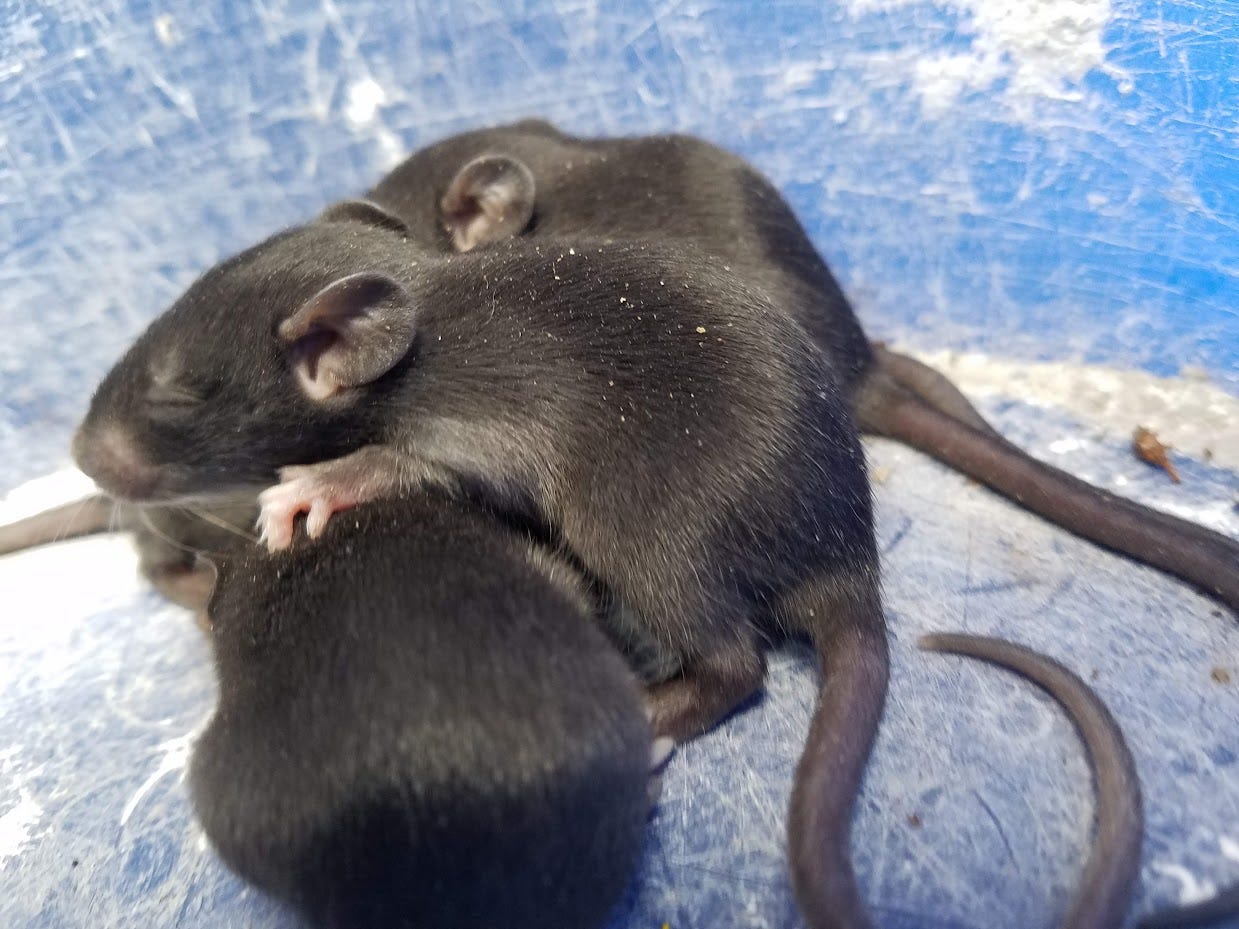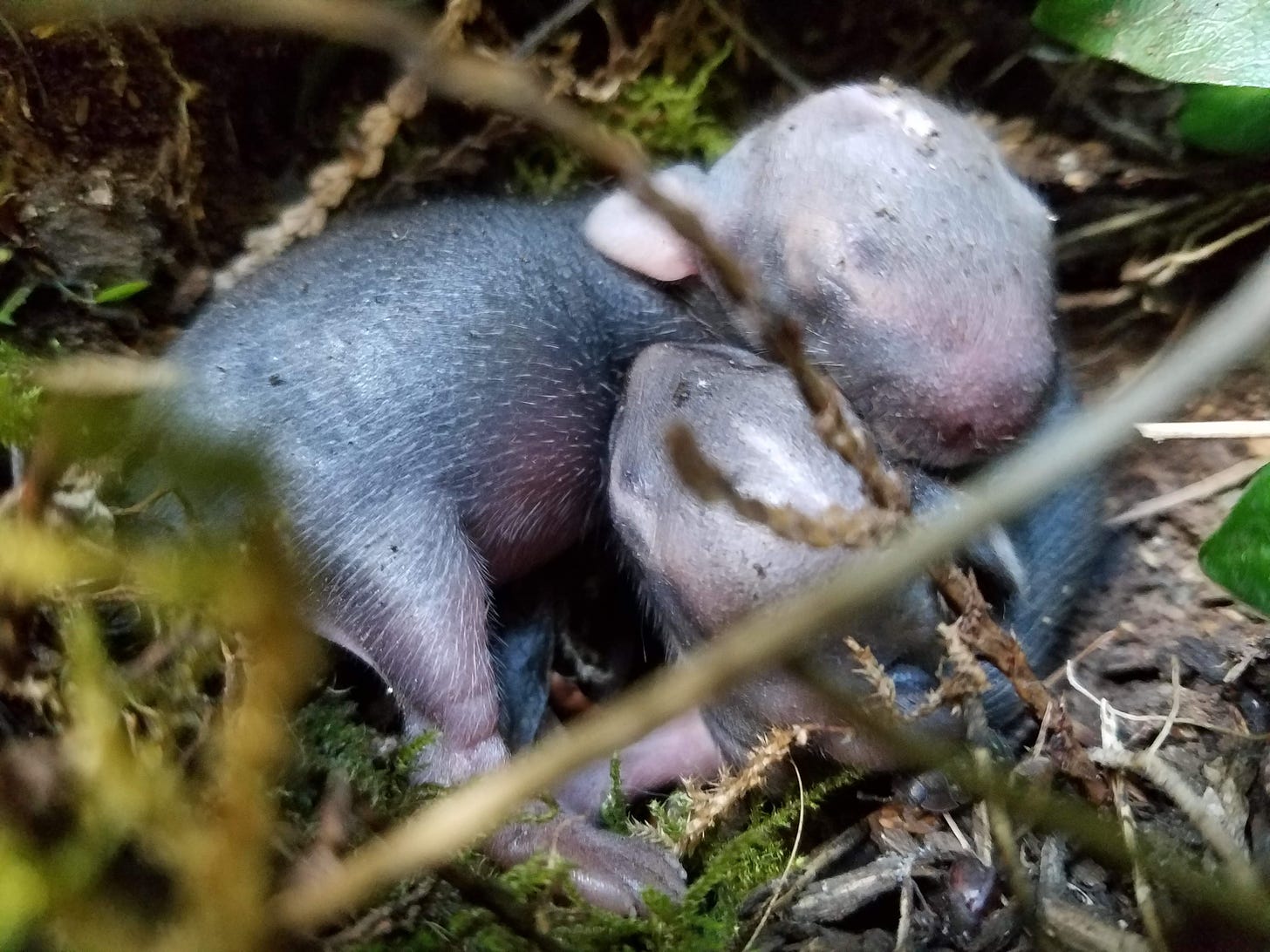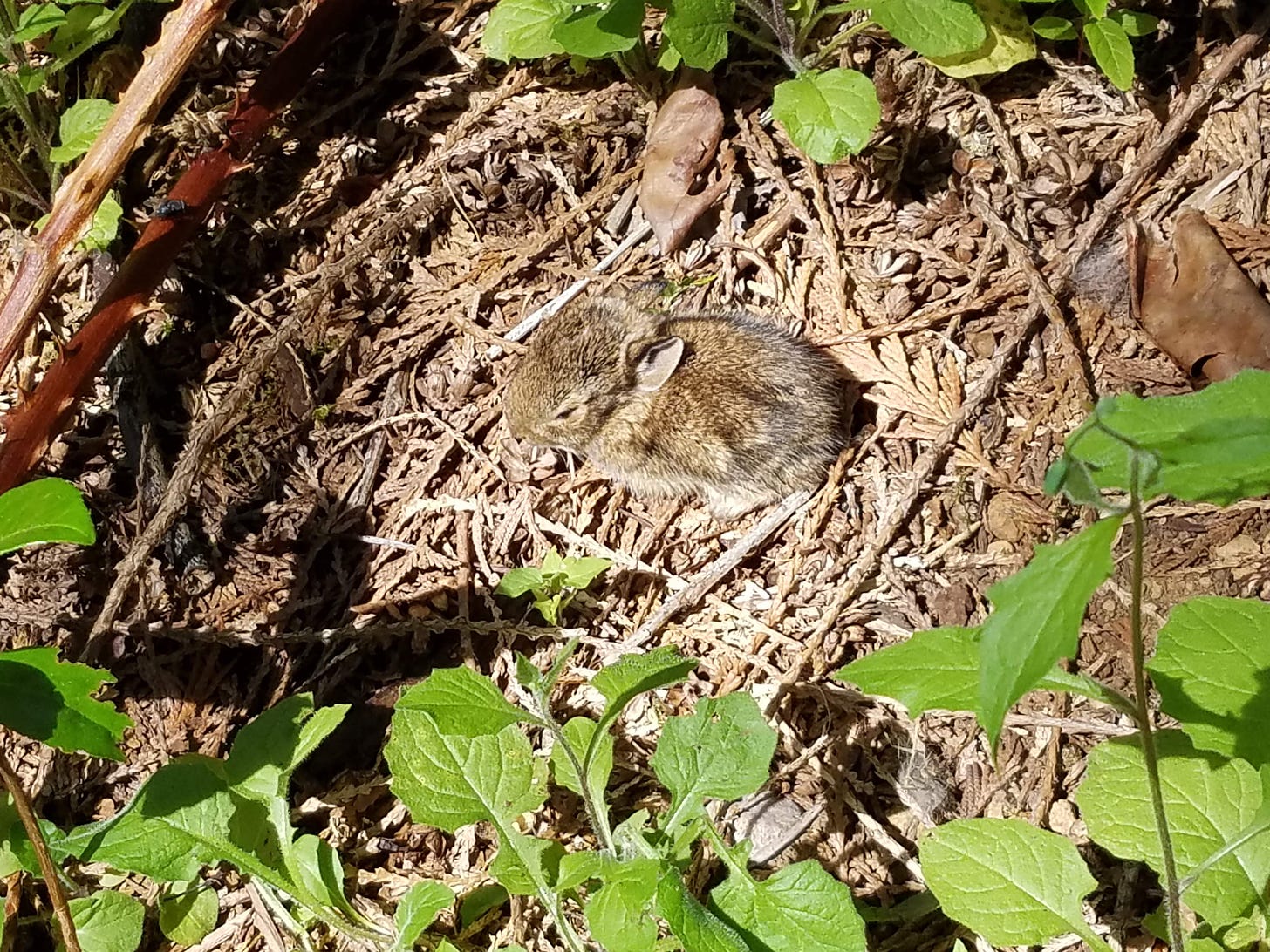Early in the morning, especially in the warmer months, I like to step out onto my deck to feel the air. I can breathe it in, gauge the temperature, the humidity, get a feel for what the day will bring. I’m often up before sunrise or just after, so I can catch a glimpse of color in the sky or find the pattern of clouds overhead. Birds in the tall trees sing, the last of the frogs chirp in the creek off beyond the back fence. My dogs will often join me, sniffing the pots of herbs or licking a bit of condensation off the furniture.
One morning I nearly had my face taken off by a bat zooming past at high speed. I felt its wing brush my cheek.
The neighborhood ducks, fed by one of our neighbors, fly low over the house, squeaking softly with the beat of their wings in a way that always makes me grin.
The kids have named the various rabbits who nibble grasses and weeds at the edges of the lawn and dart under the brush or the shed to hide when chased by a wild kid armed with a nerf gun.
It’s beautiful. It’s serene.
It also has the capacity to be cruel and terrible.
Humans are this rare species that suffers from ideation. We see the potential for something to be perfect, peaceful, free of stress, and we imagine that that is the ideal state. And nature, of course, must be like that, because it is pure and awesome and fragile and balanced. Always balanced.
Here’s the thing – it’s not. We like to sugarcoat it, but nature is violent and extreme and often tears itself to pieces without regard to whomever is watching.
When we first moved into this house, the yard needed a lot of tending. In those early spring weeks of cleaning up brush and debris, I accidentally uncovered a nest of baby rats (I said I have rat stories, and I deliver rat stories). They were small, their eyes not even open, and utterly defenseless. And here I was, thundering through their home to “clean” that space for my own use. I gathered them up to move them out of my way while I worked, and I even tried calling the local wildlife place to see what could be done. But – as policy dictates – invasive species can’t be helped. I could take them in to be humanely euthanized, but nothing else. I was heartbroken for what I’d done (and also a tad creeped out about rats…), so I recreated a nest space for them and placed them back, hoping their mother would return and take them somewhere better. They were gone the next day.
Yes, I’m aware that they could have been eaten by something, and I’d never know.
And then the Juncos laid a nest of eggs inside our upturned canoe. I changed our plans to take it out for a cleaning and left it, hoping the nest would be fine. It wasn’t. Another part of the food chain discovered it several days later, and I came out to broken eggs on the ground. Juncos, if you’re unaware, are terrible at finding good nest locations. We’ve seen them all over the place, always in a vulnerable spot that does not succeed in housing the eggs until they open. And yes, I’ve tried relocating those nests at times, hoping that getting them off the ground would give them a fighting chance. It never works.
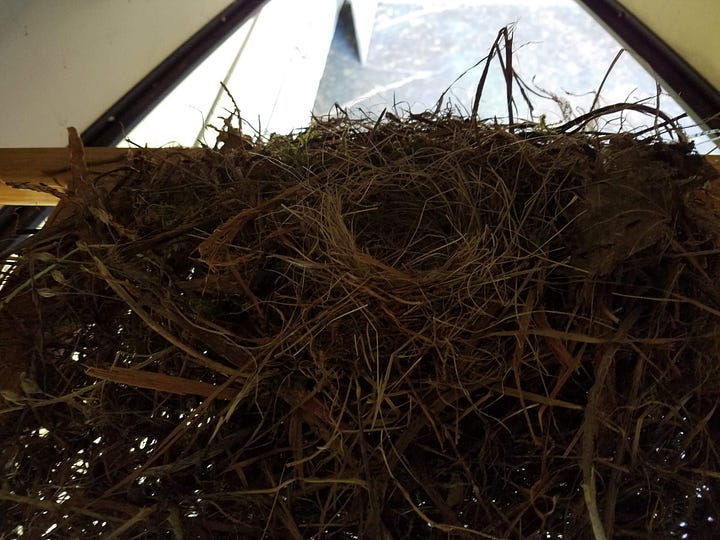
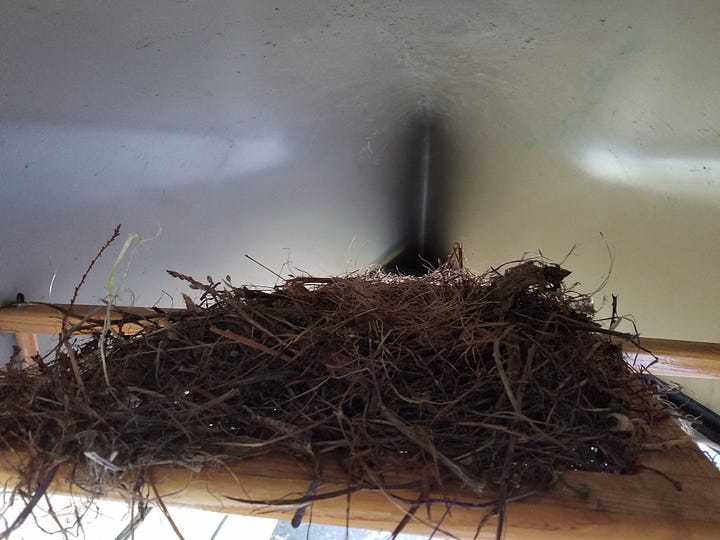
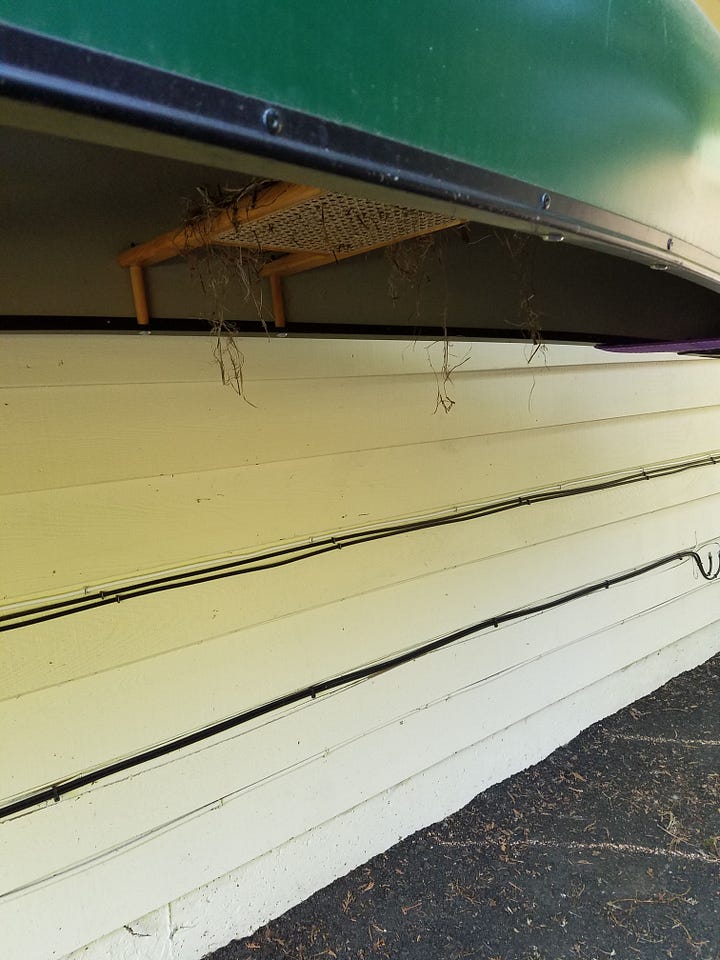

Three nests of baby bunnies in our yard failed in the span of a single year. One was placed right in front of the windows to the TV room, a perfect location for us to watch them grow up without disturbing them, and then the mother got spooked and never came back. The backyard nests were similar – the mother was always too skittish and abandoned the tiny babies for me to clean up when they were cold and dead a week later.
For real, you pick the one house on this road with two huge Pyrenees dogs in it? That’s just poor planning and research.
Each time it happens, I do my best not to intervene. But our habits around this home are noisy and boisterous. The kids are currently digging for dinosaur bones behind the shed. They build shelters out of sticks or create obstacle courses from branches and rocks, squealing as they race through them at high speed. I was, at the very least, successful at denying the request to dig a latrine behind the fort. The things they learn in adventure camp…
I feel a responsibility to minimize all that noise, all that disruption where the plants and animals sharing their space with us must abide our messy ways. Sometimes I move nests. I’ve been known to put fledglings back, to nurse the furry things to their teen years so they can scurry away, to construct barriers to let some other critter finish nesting season without the inherent destruction of kids and dogs and a wild soccer ball tumbling through the underbrush.
Humans are ecosystem engineers. We change the terrain, how the water moves, where things can and cannot grow, and I’m no better than anyone else in that regard. I tore out a quarter acre of blackberry brambles, home to several rabbits, in order to create the garden I now tend daily. And with it has arrived a new set of bugs and birds and scurrying things. They use that space as much as I do. More, in fact.
This morning, in the very early light while I made breakfast, the dog on the deck stood up to watch a flurry of wings flapping in circles over the yard. A crow, one of the current residents who has its own patterns and routines, had stolen a tiny body from a nest, and the sparrows were in hot pursuit. It was a lost cause and a grim sight.
How many creatures know their own mortality? Do they eat and grow and run and hide, always knowing death could be around the corner waiting for them? Humans know this. We talk about it, tell stories about the death of people we knew and loved, fictionalize our own future deaths, wonder about the why and the where of it. The coyotes in my neighborhood, quietly stalking the rabbits and the fledgling owls, do they curl up in the heat of the day and dream of their own end someday? Do the rabbits know? Do the owls?
If they do, they’re better at accepting it than I am. I’m the one always intervening, always trying to balance something that’s out of my control. I can accept that I will die and also fear that mortality, wish to postpone it just a little longer.
There will be another nest in the wrong place. I’ll find another hummingbird stunned from hitting a window. Baby bunnies will be left behind and neglected. I know they’ll die eventually. But in the meantime, if I can share a little kindness, I’m going to try.
In my last days, I hope someone thinks to share a moment of kindness with me.
Your trans friend,
Robin





